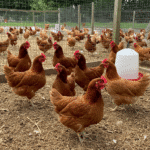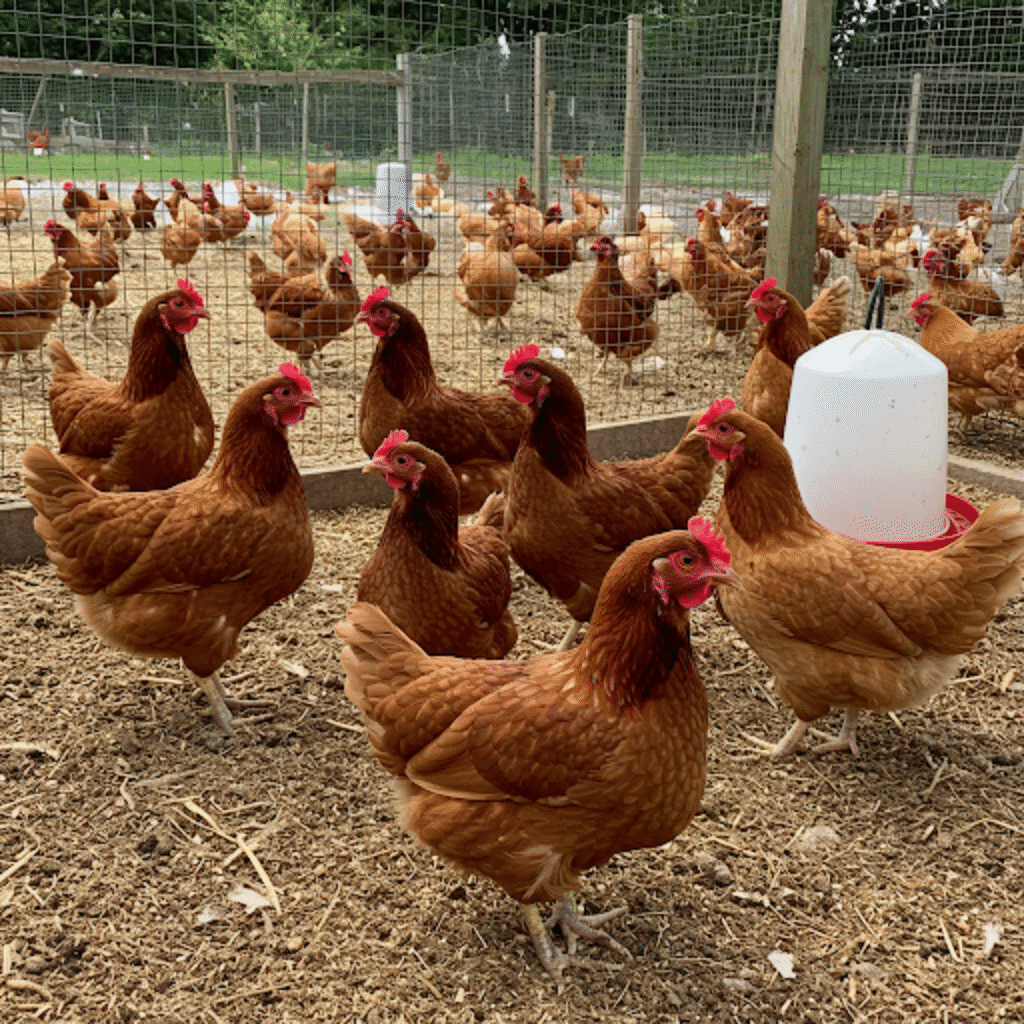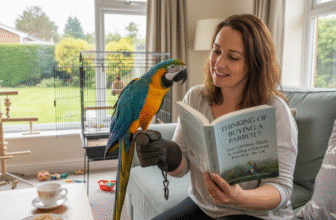
Thinking About Keeping Chickens? Your Guide to Finding Birds Near You in the UK
There’s a certain charm to the idea of keeping chickens, isn’t there? Perhaps it’s the promise of freshly laid eggs each morning, the gentle clucking sounds in the garden, or the simple pleasure of watching these feathered characters go about their day. Whatever the reason, the trend of backyard chicken keeping has truly taken flight across the UK. If you’ve found yourself typing “chickens for sale near me” into a search engine, you’re certainly not alone. But bringing chickens home involves more than just finding a seller. It’s a rewarding commitment that requires preparation, understanding, and a little bit of know-how. This guide aims to walk you through the journey, from initial considerations to bringing your new flock home.
Why Welcome Chickens into Your Garden?
Before diving into the practicalities, let’s consider the appeal. Why are so many people in the UK embracing hen husbandry?
- Fresh Eggs, Unbeatable Taste: This is often the primary motivator. There’s simply no comparison between a supermarket egg and one laid just hours before, collected warm from the nest box. The yolks are often richer, the whites firmer, and you know exactly what went into producing them.
- Natural Pest Control: Chickens are voracious foragers. Given supervised access to your garden, they’ll happily gobble up slugs, snails, caterpillars, and other critters that might otherwise munch on your prized plants.
- Excellent Compost Activators: Chicken manure is rich in nitrogen and other nutrients, making it fantastic fertiliser once properly composted. They also help turn compost heaps, speeding up decomposition.
- Educational Value: For families, chickens offer brilliant learning opportunities for children about life cycles, responsibility, and where food comes from.

- Therapeutic Companionship: Many keepers find the routine of caring for their hens and simply watching their antics incredibly relaxing and therapeutic. They develop distinct personalities and can become surprisingly engaging pets.
- Sustainability: Keeping chickens can be a small step towards a more sustainable lifestyle, reducing food miles and making use of kitchen scraps (suitable ones, of course!).
Hold Your Horses (or Hens!): Essential Considerations Before You Buy
Enthusiasm is great, but practicality is key. Before you start searching for chickens for sale, take a step back and honestly assess if you’re ready.
Space and Housing
Chickens need adequate space, both inside their coop (hen house) and outside in a run. Overcrowding leads to stress, bullying, and disease. A general guideline is at least 0.3 square metres (3 sq ft) of coop space per standard-sized bird and 1 square metre (10 sq ft) of run space, but more is always better. Consider:
- The Coop: Needs to be secure from predators (foxes, badgers, rats), well-ventilated but draught-free, and provide roosting perches and nest boxes (one box per 3-4 hens).
- The Run: Must be predator-proof, including protection from aerial threats (birds of prey) and digging predators (foxes). A covered run also provides shelter from harsh weather and helps prevent muddy conditions.
- Free-Ranging?: If you plan to let them roam the garden, ensure it’s securely fenced and be prepared for some digging and plant-nibbling! Supervised free-ranging is often the best compromise.
Time Commitment
Chickens aren’t demanding pets compared to dogs, but they do require daily care. This includes:
- Letting them out in the morning and securing them safely in the coop at dusk.
- Providing fresh food and water daily, and cleaning feeders/drinkers regularly.
- Collecting eggs daily.
- Quick daily visual health checks.
- Weekly or bi-weekly coop cleaning (removing soiled bedding).
- More thorough deep cleans periodically.
You’ll also need to arrange care if you go away on holiday.
Rules and Regulations
While keeping a small number of backyard chickens in the UK is generally permitted, there can be local nuances:
- Property Deeds/Tenancy Agreements: Check if there are any covenants or clauses prohibiting livestock.
- Local Council: While usually not an issue for small flocks, it’s worth checking if your local council has specific by-laws, particularly regarding noise (cockerels!) or proximity to neighbours.
- Avian Influenza Registration: If you keep 50 or more birds (even if mixed species like chickens, ducks, geese), you are legally required to register your flock with DEFRA (or the relevant devolved administration). Even if you have fewer, voluntary registration is strongly encouraged as it allows you to receive important updates during disease outbreaks.
- Noise and Neighbours: Consider your neighbours. Hens are generally quiet, but cockerels crow loudly and often, which can cause disputes. Most backyard keepers stick to hens only unless they plan to breed.
Costs
Factor in the initial setup costs (coop, run, feeders, drinkers, initial birds) and ongoing expenses (feed, bedding, healthcare/worming, potential vet bills).
Choosing Your Flock: A World of Breeds
Not all chickens are created equal! Breeds vary hugely in size, egg-laying ability, temperament, hardiness, and appearance. Consider what’s most important to you.
Popular Choices in the UK
- Hybrids (e.g., Warrens, Lohmann Browns, Black Rocks, Bluebells): Bred specifically for high egg production (often 300+ eggs per year). They are generally hardy, docile, and readily available. Ideal for beginners focused on eggs. Their laying life is usually shorter (2-3 years of peak production).
- Pure Breeds – Good Layers: Many traditional breeds lay well, though perhaps not as prolifically as hybrids. Examples include:
- Light Sussex: Attractive white birds with black markings, good layers of cream/light brown eggs, dual-purpose (good meat birds too), generally calm.
- Rhode Island Red: Brown birds, excellent layers of brown eggs, very hardy, can sometimes be assertive.
- Leghorn: White birds (typically), prolific layers of white eggs, active foragers, can be flighty.
- Orpington: Large, fluffy, attractive birds in various colours (Buff is popular). Good layers of light brown eggs, very docile and friendly, make great pets. Prone to broodiness.
- Plymouth Rock: Often barred (black and white stripes), good layers of brown eggs, hardy, calm, dual-purpose.
- Wyandotte: Rounded, attractive birds with laced patterns. Good layers of tinted eggs, generally docile, hardy.
- Bantams: Smaller versions of standard breeds or true bantams (no large counterpart). They eat less, need less space, and are often very charming. Egg size is smaller. Popular choices include Pekins, Sebrights, and bantam versions of larger breeds. Great for smaller gardens.
- Ornamental/Rare Breeds: Breeds kept more for their unique appearance or conservation status than egg production (e.g., Polish, Silkie, Araucana – lays blue/green eggs).
Temperament and Hardiness
Consider breeds known for being calm and friendly, especially if you have children (e.g., Orpingtons, Sussex, Silkies). Also, think about UK weather – choose breeds known to be hardy and suited to our climate.
Finding “Chickens for Sale Near Me”: Your UK Options
Okay, you’ve done your homework, prepared the space, and have an idea of the breeds you like. Where do you actually find these chickens locally?
Reputable Breeders
Often the best source, especially for pure breeds. Good breeders prioritise health, welfare, and breed standards. They can offer advice and often vaccinate their birds.
- How to find them: Breed club websites (e.g., The Poultry Club of Great Britain, specific breed clubs), online directories, local agricultural shows, word-of-mouth.
- Pros: Known genetics, health history often available, expert advice, specific breeds/ages available.
- Cons: Can be more expensive, may need to travel further for specific breeds.
Hatcheries
Large-scale operations primarily focused on producing hybrid layers or chicks. They often supply commercial farms but many also sell smaller quantities to backyard keepers.
- How to find them: Online searches for “poultry hatcheries UK”, agricultural suppliers.
- Pros: Consistent supply, birds often vaccinated, Point of Lay (POL) hens readily available (meaning they are about to start laying).
- Cons: Less individual attention, focus is often purely on production traits.
Online Marketplaces and Classifieds
Websites like Gumtree, Preloved, Pets4Homes, and specialist poultry forums often list chickens for sale by individuals, smallholders, and breeders.
- Pros: Wide variety, potentially lower prices, can find sellers very close to home.
- Cons: High risk – difficult to verify seller reputation, health status, or vaccination history. Proceed with extreme caution. Always arrange to see the birds before committing. Beware of scams or unhealthy birds.
Rescue Centres and Rehoming Charities
Organisations like the British Hen Welfare Trust (BHWT) rescue ex-commercial laying hens destined for slaughter. Giving these girls a second chance at life is incredibly rewarding.
- How to find them: Search for “chicken rescue UK” or specific charity websites (BHWT has collection points across the country).
- Pros: Saving lives, hens are often very cheap (a donation is requested), supporting a good cause.
- Cons: Hens may have health issues initially (feather loss, needing to adjust), specific breeds usually unavailable (mostly commercial hybrids), limited availability based on rescue dates.
Local Farms and Smallholders
Farmers or smallholders diversifying or downsizing their flocks may sell surplus birds.
- How to find them: Local notice boards, farm shops, farmers’ markets, word-of-mouth.
- Pros: Can see the conditions they were raised in, potentially good value.
- Cons: Health/vaccination history might be unknown, availability is sporadic.
Poultry Auctions and Shows
Auctions can offer a wide variety, but it’s a high-risk environment for beginners – difficult to assess health properly, stressful for the birds. Poultry shows are great for seeing breeds and meeting breeders, often with birds for sale.
- Pros (Shows): See quality birds, meet knowledgeable breeders.
- Cons (Auctions): High disease risk, stressful, not ideal for novices.
Selecting Healthy Birds: A Buyer’s Checklist
Whether you’re buying from a top breeder or a local smallholder, always assess the birds’ health carefully. Never buy birds you haven’t seen in person.
- Observe the Flock: Are the birds active, alert, and foraging? Are their surroundings reasonably clean?
- Eyes: Bright, clear, and wide open. No discharge, swelling, or cloudiness.
- Nose/Nares: Clean and dry. No sneezing, discharge, or bubbles.
- Comb and Wattles: Should be plump, colourful (appropriate for the breed/age – pale can indicate illness or non-laying), and free from scabs or spots (except normal pigmentation).
- Feathers: Generally smooth, clean, and glossy (unless moulting or ex-batts). Look for signs of lice or mites (small moving dots, clumps of eggs near feather bases, especially around the vent). Avoid birds with excessive feather loss unless you know the reason (e.g., recent moult, ex-commercial hens).
- Legs and Feet: Smooth scales on the legs (raised, crusty scales indicate scaly leg mite). No limping, swelling, or cuts. Check the footpads for sores (bumblefoot).
- Vent (Cloaca): Clean and dry. Soiled, wet feathers (pasty butt) can indicate digestive upset.
- Body Condition: The bird should feel well-fleshed but not obese. The keel bone (breastbone) shouldn’t feel razor sharp (underweight) or be hard to feel (overweight).
- Breathing: Quiet and regular. No wheezing, gurgling, or gasping.
- Behaviour: Avoid lethargic birds hunched up separately from the flock.
- Ask Questions: Enquire about their age, vaccination status (ask for proof if possible), worming routine, and diet. Reputable sellers will be happy to answer.
It’s often best to buy all your birds from the same source at the same time to minimise disease risks and make introductions easier.
Bringing Them Home: Settling In
You’ve chosen your birds! The journey home should be as stress-free as possible using suitable carriers (cardboard boxes with ventilation or pet carriers). Once home:
- Quarantine (If Adding to Existing Flock): If you already have chickens, *always* quarantine new arrivals for 3-4 weeks in a separate coop and run well away from your existing flock. This prevents potential diseases from spreading. Monitor them closely during this period.
- Initial Setup: Place them directly into their secure coop/run with fresh food and water readily available. Keep them confined to this area for the first few days so they learn where ‘home’ is – where to roost and lay.
- Gentle Introduction: Let them settle in quietly. Avoid handling them too much initially unless necessary.
- Integration (If Applicable): Introducing new birds to an established flock requires care as chickens have a strict pecking order. Gradual introduction methods (e.g., housing them side-by-side in separate runs first) work best. Expect some initial squabbles. Ensure plenty of space and multiple feeding/watering stations to reduce competition.
Keeping Your Hens Happy and Healthy: The Basics
Owning chickens is an ongoing responsibility. Key aspects include:
- Secure Housing: Constant vigilance against predators is essential. Check coop and run integrity regularly.
- Nutrition: Feed a balanced commercial layer feed appropriate for their age. Supplement with greens, vegetables, and occasional protein treats (like mealworms) in moderation. Provide access to grit (for digestion) and oyster shell (for strong eggshells). Avoid feeding unsuitable kitchen scraps (check DEFRA guidelines – feeding kitchen scraps that have passed through your kitchen is technically illegal to prevent disease spread, stick to raw veg/fruit peelings directly from the garden/prep area if unsure).
- Fresh Water: Essential at all times. Clean drinkers daily.
- Health Monitoring: Regular checks for parasites (lice, mites, worms) and signs of illness. Have a plan for dealing with common issues and know where your nearest poultry-savvy vet is (not all vets specialise in chickens).
- Biosecurity: Simple measures like cleaning boots before/after entering the run, especially during Avian Influenza alerts, help protect your flock.
The Rewarding Reality
Keeping chickens is a wonderfully grounding hobby. The connection to your food source, the gentle rhythm of daily care, and the individual personalities shining through make it immensely satisfying. Yes, there are challenges – dealing with muddy runs in winter, potential health issues, and the constant battle against predators – but for most keepers, the rewards far outweigh the difficulties.
So, if you’re ready to move beyond searching “chickens for sale near me” and take the plunge, do your research, prepare thoroughly, choose your source wisely, and look forward to the unique joys that backyard chickens bring. Happy hen keeping!







